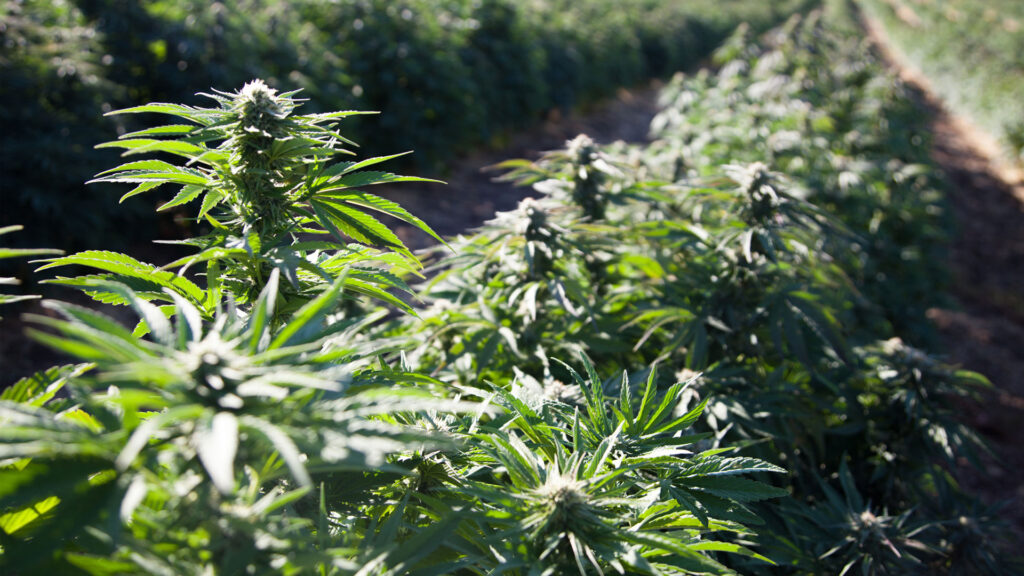By Tory Moore, University of Florida Institute of Food and Agricultural Sciences (UF/IFAS)
Initiated this year, UF/IFAS hemp research and Extension teams will prioritize hemp crops with climate-smart management with help from a five-year USDA Climate-Smart Commodities grant. The $4.9 million grant led by Florida A&M University will help researchers support hemp production for conservation and carbon sequestration that can help combat climate change.
Carbon sequestration is the process of removing carbon dioxide and other greenhouse gasses from the air. Plants can contribute to carbon sequestration by absorbing carbon dioxide from the air during photosynthesis. The larger the plant, the more carbon dioxide it takes from the atmosphere. Hemp grown for fiber grows more quickly than other crops and can reach 15 feet in height, so it can capture a lot of carbon in a short amount of time.

“A fiber hemp crop can be huge. Previous research has cited that one hectare, which is equal to about 2.5 acres, of industrial hemp can absorb up to 15 tons of carbon dioxide in a growing cycle,” said Zachary Brym, UF/IFAS assistant professor, agroecologist and lead scientist on the hemp project. “This can be more effective than trees on an annual basis, which capture up to six tons of carbon per hectare. We want to encourage the growth of this crop as a strong contributor of conservation and carbon sequestration through agriculture.”
The research team includes experts in a variety of disciplines including social scientists, agronomists and economists from several institutes in the Southeast. In addition to verifying methods to facilitate hemp’s carbon sequestration ability, the project will engage small and/or underserved farmers in cultivating hemp, and grow market opportunities for industrial hemp. A model to monitor greenhouse gas reductions from hemp crops could help establish carbon credits for farmers who grow the crop for carbon.
“Historically small and underserved farmers have often been early adopters of new crops or agricultural products, only to be pushed aside when a ‘novelty’ crop grows more important in the farm-to-consumer network,” said Mickie Swisher, UF/IFAS social scientist involved in the project and a professor in the family, youth and community science department. “The number of farms has declined almost every year since 2000. We need to make sure that small and underserved farmers have the resources they need to compete in the global agricultural economy. Hemp may have a big role in this.”
Farmers from Florida, Alabama, Louisiana and Mississippi will be recruited to participate in the project. Researchers hope that in addition to the benefits to the environment, this project can grow the hemp market and generate an added source of income for farmers.
UF/IFAS is also working on another research project within the climate-smart commodities program with Iconoclast Industries. That project will help develop a commercial hemp fiber industry through the conservation and carbon sequestration crop management techniques gained from this project.
“Agroecology aims at land management strategies assisted by transforming the economy and valuing the carbon sequestration benefits. It is an exciting possibility,” said Brym, an assistant professor based at the UF/IFAS Tropical Research and Education Center. “We know industrial hemp is a great carbon sink. Now, we want to upscale that and make it an income generator with a strong market.”
Tory Moore is a public relations specialist with UF/IFAS Communications. This piece was originally published on the UF/IFAS blog.



